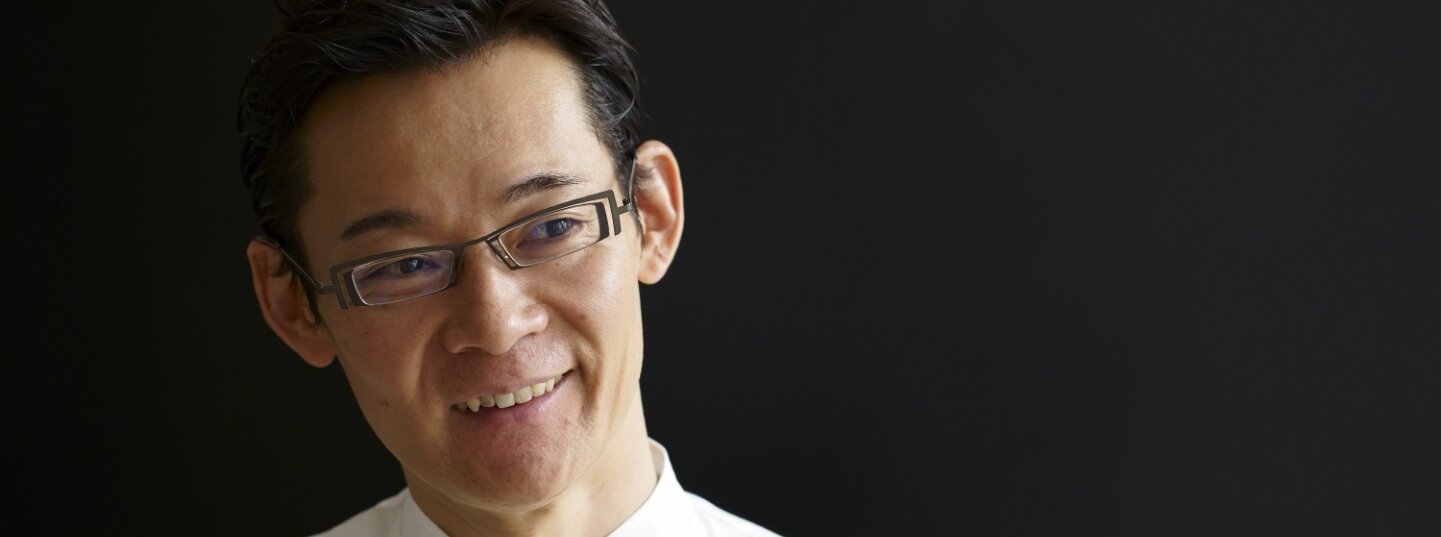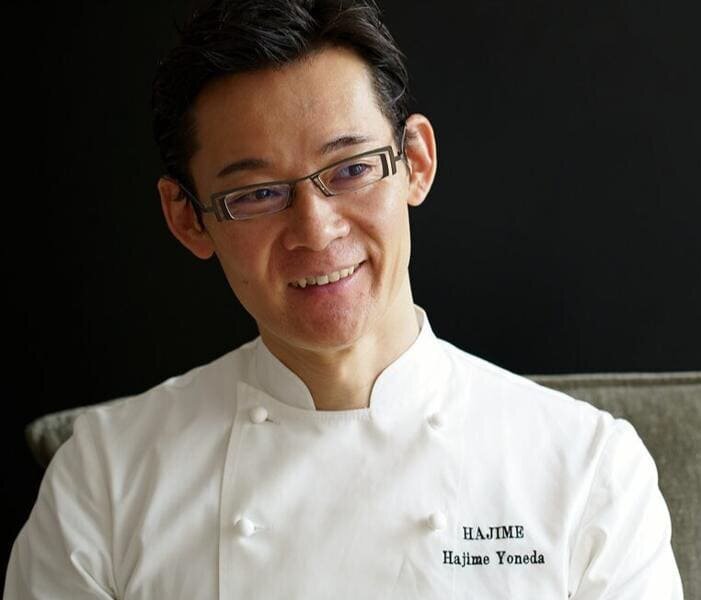The Future Kitchen Series – Chef Hajime Yoneda Part 1
Transforming the restaurant industry with technology
Gastronomy
December 12, 2022
THE FUTURE KITCHEN SERIES
Since 2020, we have been exploring the world of gastronomy and learning as much as we can from the industry’s leading chefs. Starting with Chef Hajime Yoneda, who has spent many hours guiding us through the challenges facing the industry and the opportunities for AI and robotics technology, we are keen to communicate what we have learnt. This series aims to bring you the very latest thoughts from the world’s greatest culinary minds.
Imagine the ideal chef to advise an AI company wanting to drive sustainable, healthy and delicious creativity in the kitchen. That chef would probably be a leader in their field and have a strong technology background, a range of experience of different cuisines and kitchens, a desire to reinvent the industry, a desire to support other chefs, a desire to serve the planet, and – as a bonus – a strong artistic sentiment.
Hajime Yoneda, owner of restaurant HAJIME in Osaka, is this person. Chef Yoneda began his career as an engineer, graduating from the Department of Electronic Engineering at Kinki University. He holds the record for the fastest earned Michelin stars ever, gaining his three in 2008 barely a year and a half after opening his restaurant. As a chef, he has done it all – and yet he still wants to do more.
His restaurant has broken countless boundaries. A dish called ‘Earth’ uses over 100 different vegetables on a sixty-centimeter plate to tell the story of the planet’s formation and the bounty it has produced. In each dish, you can see the value of technology, be it electrical, chemical, architectural or even neuroscientific. But more than just to create masterpieces, Yoneda’s deep passion for technology also comes from his desire to help transform Japan’s restaurant industry.
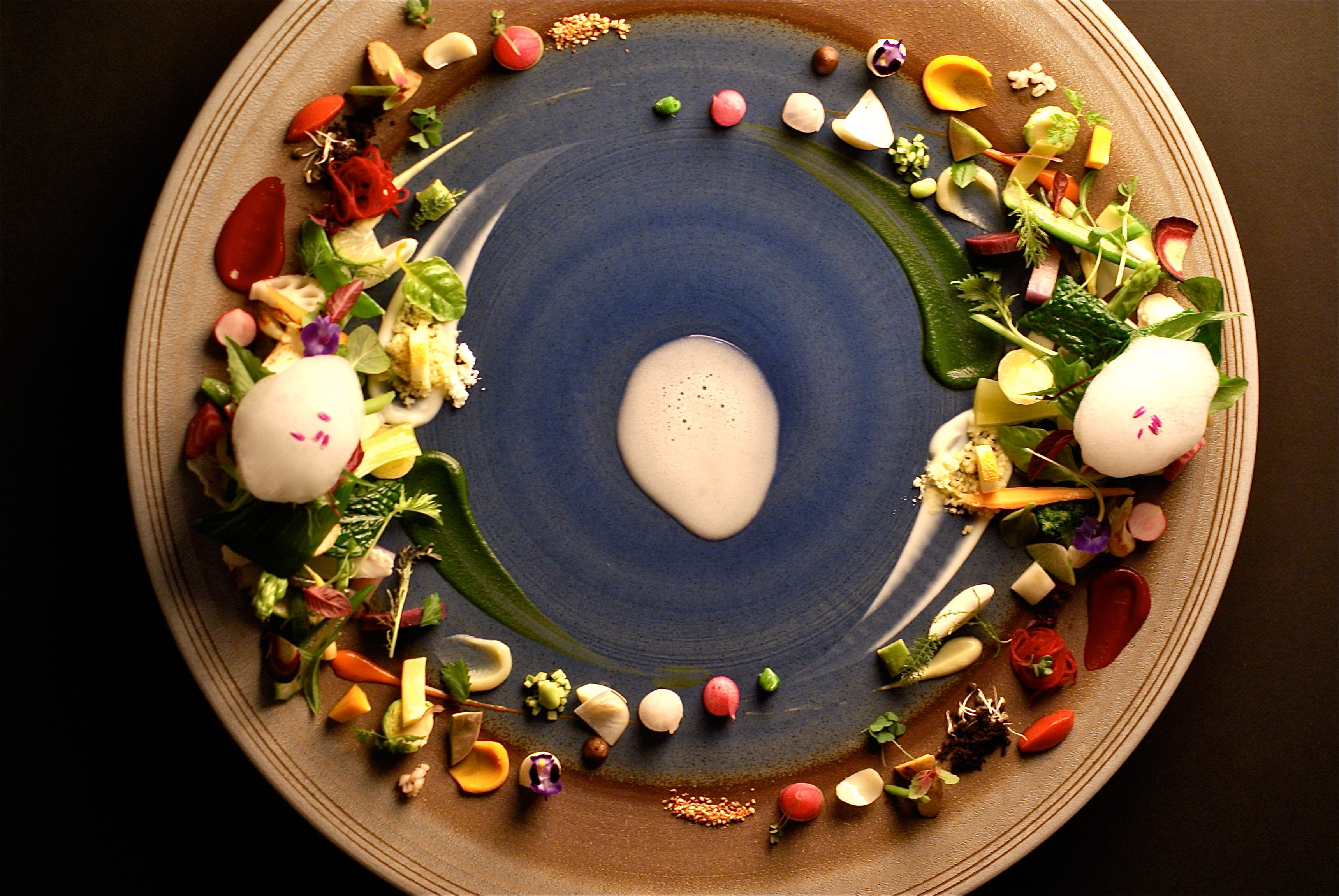
Yoneda’s dish, ‘Earth’, uses over 100 ingredients.
He sees many of the industry’s challenges compounded in a drastic labor shortage that has been felt in restaurants across the world, especially since Covid. Meanwhile, recent statistics show how the pay scale in the Japanese restaurant industry has increased little by little, dialing up the pressure on costs. This is necessary to attract and retain talent in an industry that in Japan, as in many countries, requires staff to work long hours in tough conditions, but it impacts the notoriously low margins of restaurants. With food costs rising as well, the situation looks difficult.
“As a percentage of sales, 55% is considered suitable for combined food and labor costs,” Yoneda says. “Management therefore needs to keep labor costs below 30%, but that’s a very hard task if you wish to maintain quality in cuisine and service.”
Yoneda thinks technology such as AI and robotics have the power to fundamentally transform this. It can improve working conditions to help the industry attract and retain talent. It can lower the strain of monotonous tasks to allow chefs to focus on value-adding work. For example, new sensing technologies can give chefs consistent confidence by providing data around quality, as well as feedback on customer enjoyment. AI can help them further utilize this information – along with a wide range of other data, from culinary to scientific, to provide new entry points into dish design. And robots can help with skills transfer, preparation and hygiene.
“Food preparation demands mastery of all five senses (sight, sound, smell, touch, taste). We must, therefore, research and develop never-before-seen technologies for recognition, sensing and robotics.”
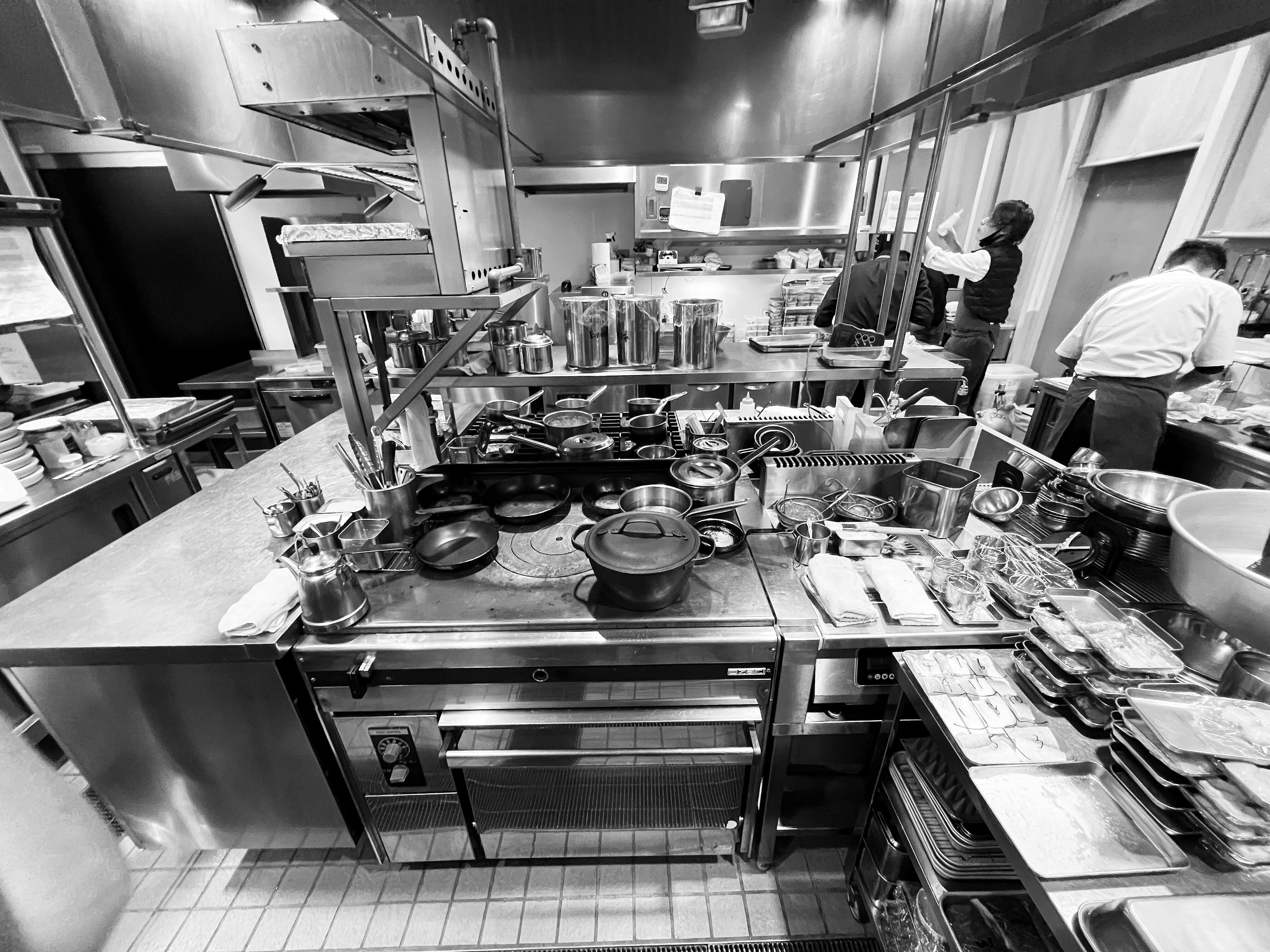
“A chef is like an architect” – a HAJIME workstation.
Perhaps most revolutionary is the structural reform that technology might drive in the industry, as kitchens separate creativity and innovation processes from execution and service. Other industries, like architecture, are already set up like this.
“A chef is like an architect who thinks of the building concept and draws up the sketch, then mixes the concrete, manages all the building materials and acts as the site foreman. I am always thinking about how we could also reduce labor issues by creating an environment in which a chef focuses on drawing up blueprints, doing research and digitizing different elements…”
Crucially, Yoneda sees this technology working in harmony with chefs and restaurateurs to drive change in the industry. Also an accomplished artist, when he became an advisor to Sony AI he drew us the below image to represent the harmony he believes can exist between robots, AI and humans.
“In this drawing I’m showing a human hand and an android’s hand each holding a lemon balm leaf, which signifies compassion. When the two come together with compassion, love is created.”

AI can be read as ‘ai’, which means ‘love’ in Japanese. Yoneda sees humans and AI coming together to create a more sustainable restaurant industry.
The heart in the image is symbolic of Yoneda’s hope for the industry: ‘AI’ can be read as ‘ai’, which means ‘love’ in Japanese. As we’ve explored, Yoneda is well aware of the industry’s challenges, but he is also optimistic about the love that can be created by driving collaboration between humans and technology.
In our next blogs, we go deeper into Yoneda’s ideas for how new technologies such as sensing, AI and robotics can help drive meaningful reform of the industry.
Erica Kato Marcus
Director, Strategy & Partnerships
At Sony AI, Erica leads the Strategy & Partnership team that helps define and communicate the company’s strategic direction and develop partnerships that enable Sony AI to realize its mission. She has a broad range of experience working across Corporate and Executive Communications at Sony’s global headquarters in Tokyo, managing a global team of product managers to develop apps and services while at Sony Mobile in Sweden for Xperia smartphones and at Sony Interactive Entertainment for the PlayStation business in the US. She grew up in Japan and earned her BS degree from Boston College, and MBA from IMD Business School in Switzerland. She’s an ardent cook and in her spare time she bakes sourdough bread and is constantly experimenting with new recipes.
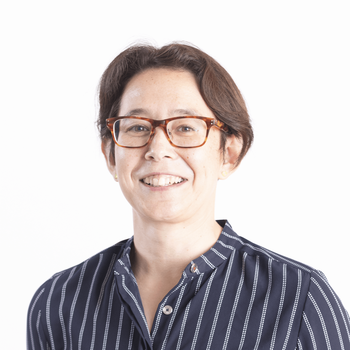
Fred Gifford
Strategy & Partnerships Manager
Born in London but raised in Tokyo, Fred has worked across the world in roles related to product innovation and corporate and business strategy, and he completed his MBA at ESADE in Barcelona in 2019. His work in AI has crossed city simulation, biopharmaceutical drug development and skyscraper energy management. In his role at Sony AI, he is helping set the strategy for the gastronomy project and build relationships with companies across the food industry.
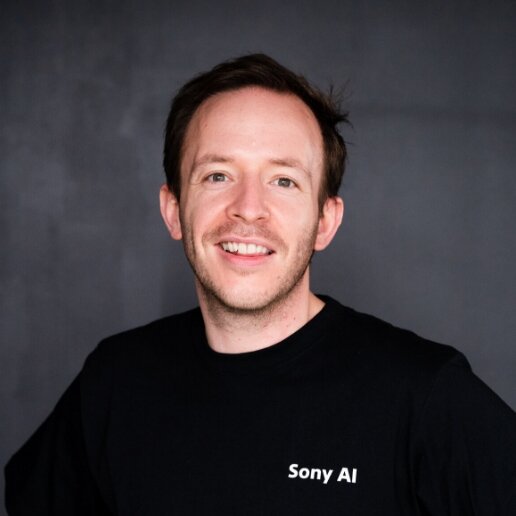
Latest Blog

June 17, 2025 | Events, Sony AI
SXSW Rewind: From GT Sophy to Social Robots—Highlights from Peter Stone and Cynt…
While SXSW 2025 may now be in the rearview mirror, the conversations it ignited continue to resonate. On March 10, 2025, Peter Stone, Chief Scientist at Sony AI and Professor at Th…
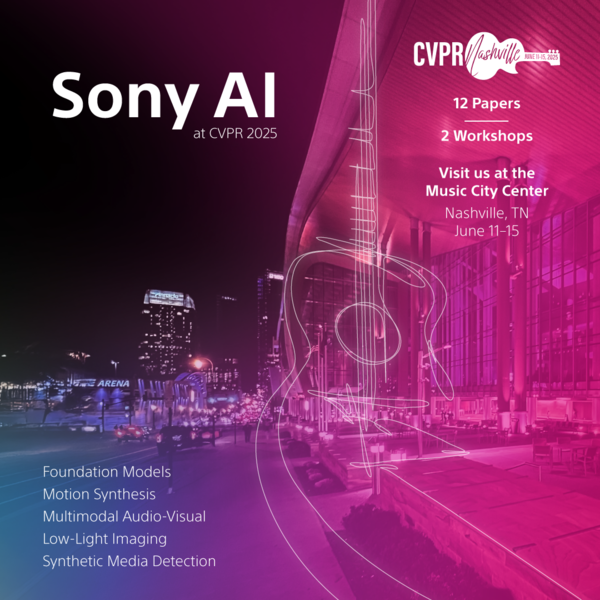
June 12, 2025 | Events, Sony AI
Research That Scales, Adapts, and Creates: Spotlighting Sony AI at CVPR 2025
At this year’s IEEE / CVF Computer Vision and Pattern Recognition Conference (CVPR) in Nashville, TN Sony AI is proud to present 12 accepted papers spanning the main conference and…
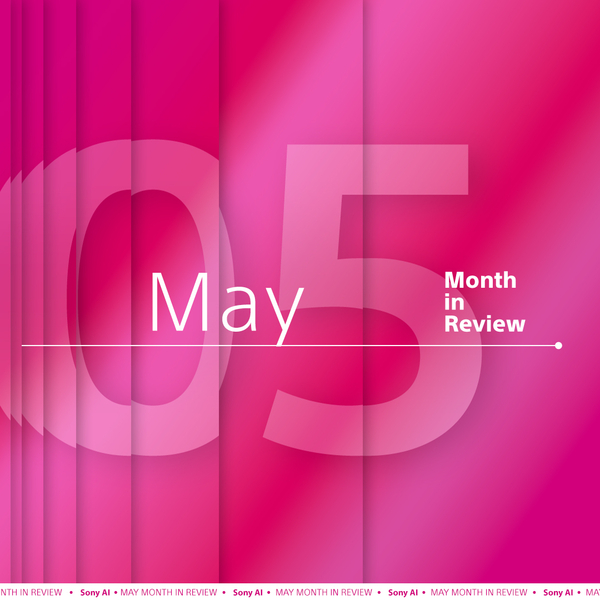
June 3, 2025 | Sony AI
Advancing AI: Highlights from May
From research milestones to conference prep, May was a steady month of progress across Sony AI. Our team's advanced work in vision-based reinforcement learning, continued building …

